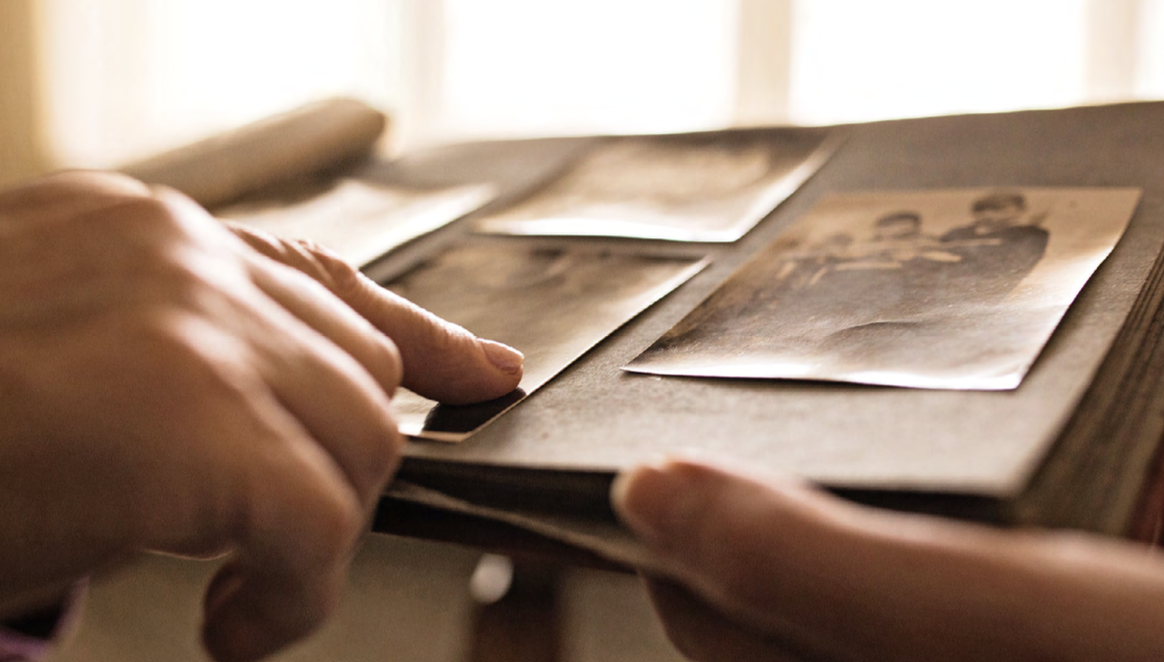By Caroline Fortin
Sharing memories can be a treasured part of holiday gatherings, but disagreements about the past can lead to conflict; it helps to understand how human memory works
Reminiscing with your brother or sister over the holidays, you might find that your childhood memories or your recollections of a specific event are completely different. One of you must be wrong, right? Before you start arguing about the details, take a moment to reflect—perhaps you’re both right and wrong to varying degrees.
Malleable Memories
Things don’t stay the same when it comes to memories. “Memory isn’t a computer that can simply replay an old movie,” explains Dr. Isabelle Rouleau, a neuropsychologist and head of the psychology department at the Université du Québec à Montréal. Rather, memories can change over time. To begin with, two people who live through the same event have their own perceptions of it. Over time, their memories will evolve differently according to who they are and what they’re going through. Every time they talk about a memory with someone, they’ll reorganize the facts. They’ll ask questions, leading to clarifications; certain elements will take on more importance, others will fade or lose significance, and some that weren’t even part of the event may be added in the retelling.
Frédérick Philippe, a researcher and full professor in Rouleau’s department, gives a classic example of this type of distorted reconstruction. “We often tell the same stories at family dinners,” he says. “One family member, who wasn’t even at the event being described, could come to believe they were there, having heard the story so many times. A memory is never objective reality; nor is it the brain’s job to remember situations objectively.”
Our memories, then, are malleable. We can mould them ourselves through auto-suggestion by talking about them or under the influence, conscious or not, of a third party, such as a therapist, a hypnotherapist, or an authority figure, sometimes with potentially serious consequences such as false accusations or false testimony in court. But these changes in the narrative can also be simply due to the brain itself.
“The brain’s job is to find the best possible prediction of the external reality, of complex events that might have taken place, based on all the information it has stored,” Philippe says. “And it doesn’t mind combining elements, reconstructing memories, or even inventing them to achieve its goal. Its aim is also to make meaning. So if, for example, my father worked long hours and was often in a bad mood, the broader meaning I take from that is that I had an absent father. It’s therefore possible that some memories of events are rewritten to fit this meaning, because the brain tries to preserve its predictions—in this case, that my father was not present to me.”
In other words, Rouleau says, “we often remember things that are very close to our interpretation of reality and reject elements that don’t match it because we need to make sense of our lives.”
Remembering the Good—and the Bad
Obviously, a sibling relationship won’t be torn apart because the youngest claims that Grandma’s wallpaper was orange and the eldest insists that it was brown. Conflicts are more likely to arise around conflicting memories of negative or traumatic events.
The brain retains things that deeply affect us better than it does those that are familiar to us. “The vividness of a memory is usually linked to the fact that it is emotionally charged,” Philippe says. “We remember positive events in a more general way: because they’re less out of the ordinary, we don’t recall the minor details as clearly. But during negative events, a kind of tunnel vision happens. Our attention is focused on very specific details. The victim of armed robbery might therefore retain a very detailed image of the gun but not of the attacker. Also, negative events, such as an accident, a conflict, or an assault, are more unpredictable, unlike a wedding or a birth. They therefore have an especially important place in the brain because they’re less predictable.”
A traumatic event registers differently in our memory. “When we go through a highly stressful, traumatic, scary situation, the amygdala is activated and will adjust the nature of the information recorded by the hippocampus—the part of the brain needed to make new memories so they can be reinforced over the long term,” Rouleau explains. “The result is that the stored memory is very rich, made up of a range of details that become prominent. However, this doesn’t stop these memories from being distorted as we go through an event, especially because our perception of time changes when we’re afraid.”
Furthermore, during traumatic events, we encode not only visual elements but also our emotions and reactions. “And when all that is reactivated, because a similar event makes us think of it or we talk about it with someone, the emotions we felt at the time come back again and we communicate our fear, our distress, our stress,” Philippe says. “This sometimes leads us to exaggerate, to magnify things—not necessarily consciously. Defence mechanisms also come into play. During a sexual assault, for example, the victim can dissociate, which will be encoded with the memory. That’s why they will have trouble describing a traumatic moment: their memory will be disjointed, incomplete. The brain then tries to bring the trauma back to the person’s consciousness in the form of flashbacks, as a way of integrating it, but we learn to protect ourselves from these images by using other mechanisms, such as emotional avoidance or denial. That means we’ll remember the event less clearly over time and find it even harder to share it.”
Malleable, adaptable, and selective: it’s not surprising, then, that our memories can be a source of discord.
In Case of Conflict…
– Get some perspective. “It’s normal for two children of the same family not to have the same memories of events because for one thing, they usually aren’t the same age and are therefore in a different spot in the birth order,” Rouleau says. “Also, they have different identities and experiences that adapt these memories.” Being aware of that is a good starting point.
– Don’t act like a lawyer or judge. “When you’re sharing a memory, you’re not arguing before the Supreme Court,” Philippe says. “You’re confiding, sharing your experience and the meaning you give to it. The person who tells you ‘Come on, it wasn’t that bad’ isn’t listening. By focusing only on the facts, on what happened from their perspective, they’re completely missing what their brother or sister is trying to tell them: how hard it was to go through this experience. In some cases, it can be important to set the record straight, to point out what’s true and what’s false, but usually, we should be listening and appreciating this different perspective on a shared event.”
– Put yourself in the other person’s shoes. “For a brother, it can be too difficult, for example, to picture his father as an abuser because this doesn’t fit his personal narrative; sometimes, it’s less costly psychologically to be in denial than to revise how they see a loved one,” Philippe says. “Try to understand the other person’s position and accept their limits; perhaps it’s important for them to preserve a positive image, either of themselves or of the person being discussed. And maybe by exploring the other’s perspective, relevant information will emerge. But this won’t happen if they’re backed into a corner.” This works both ways: the other person must understand that they are hurting us by calling our memories into question.
– Get back to basics. “Focus on communication and the relationship rather than on objective facts, which don’t exist anyway,” Philippe concludes. “Even if the scene had been filmed, you could watch it together and analyze it in different ways. Ultimately, what’s important? Your relationship or the pursuit of the truth?
“This brings us back to something important in psychology in general: that we create our own reality. It can be unsettling but also beautiful. If my basement floods, I can complain that I’ve lost everything or I can say to myself that I had wanted to renovate anyway. No matter what happens to us, we always have a choice about how we understand our reality.”






